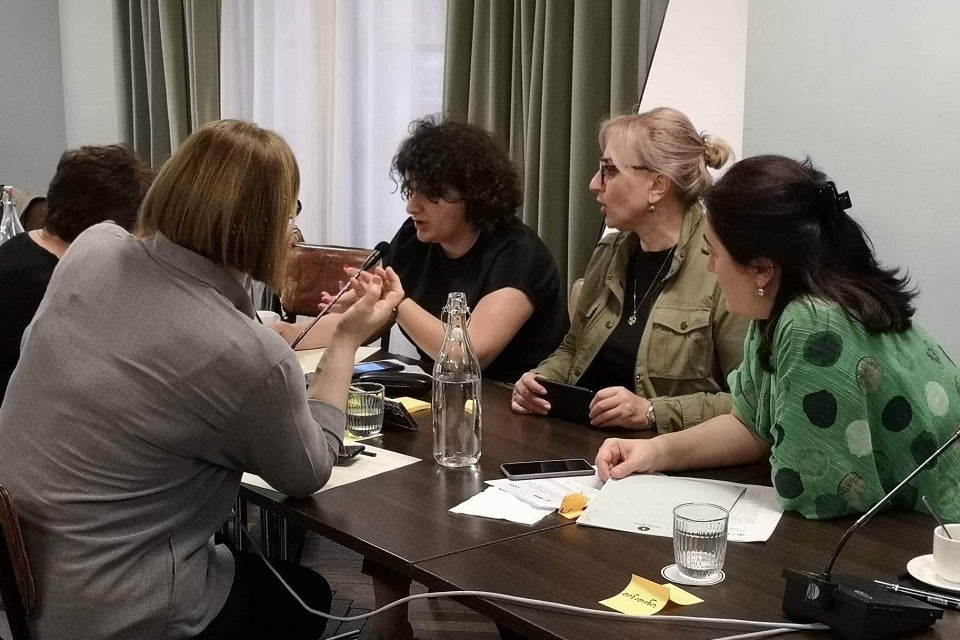Civil society organizations strengthen capacities on gender-responsive disability inclusion in humanitarian action
Date:

Persons with disabilities, and women and girls with disabilities in particular, are often among the most vulnerable and disproportionately affected groups during a humanitarian crisis. UN Women works with national partners to ensure that humanitarian preparedness and response efforts are inclusive and that women and girls with disabilities are not left behind but rather are part of the humanitarian continuum.
In line with these efforts, on 22 and 23 June, a two-day capacity development training entitled “Inclusion of Women and Girls with Disabilities in Humanitarian Action” was organized by UN Women. The training aimed at enhancing the capacity of civil society organizations (CSOs) and organizations of persons with disabilities (OPDs) on global standards, methodologies and practices for the inclusion of women and girls with disabilities in humanitarian action. The initiative also aimed at facilitating cross-learning among participants, fostering a collective approach to identifying opportunities for advocacy and lobbying by CSOs in the field. As a result of the training, 19 civil society representatives strengthened their capacities on mainstreaming gender and disability issues in humanitarian response.
“The knowledge and skills gained as a result of this training gives us the opportunity to provide evidence-based advocacy on the effective inclusion of women and girls with disabilities in humanitarian response in Georgia,” said training participant Tamar Macharashvili, the Head of the National Network of Women with Disabilities uniting a dozen civil society actors in Georgia.
While responding to the ongoing humanitarian crisis in Ukraine, the United Nations and humanitarian organizations are recording the needs of refugees. However, they are not collecting disaggregated data, making it difficult to fully understand the needs of Ukrainian refugees with disabilities. Despite Georgia having ratified the Convention on the Rights of Persons with Disabilities (CRPD), the humanitarian response to the Ukraine refugee crisis in Georgia is not inclusive of persons with disabilities. The training aimed to respond to those challenges in order to make the humanitarian response more inclusive.
The capacity development training was carried out in the framework of the UN Joint Programme (UNJP) “Mainstreaming a Disability Inclusive Humanitarian Response to the Ukrainian Refugee Crisis”, implemented by UN Women in partnership with WHO, OHCHR, UNFPA and UNICEF and generously funded by the UN Partnership on the Rights of Persons with Disabilities (UNPRPD).